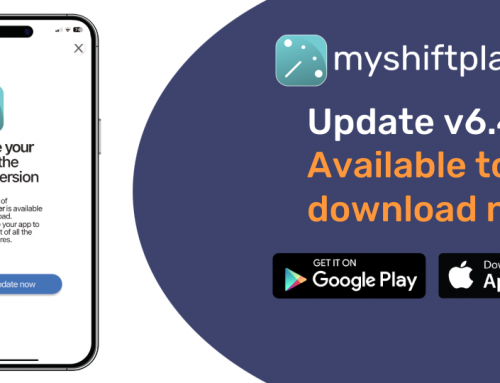This week marks Eating Disorders Awareness Week. At a time when higher rates of obesity and ill-health have been found in shift workers than the general population, it’s important to shine a light on the important issue of shift work and eating issues.
Shift Workers Struggle with Eating Disorders
With currently 1 in 6 adults in the UK working shifts, there are a number of reasons why shift worker often struggle with eating habits.
Shift work means working outside the usual 7 am to 6 pm time period, it might be straight nights, straight afternoons, or a rotation of different shifts. Whatever pattern you have, working shifts can upset your body’s “internal clock” which tells your body to be awake during the day and to sleep at night.
What are the problems that can come from shift work?
Research has linked shift work to a number of health problems related to eating. These include weight gain, blood sugar issues (diabetes) and heart disease.
Many of the health problems that we can experience due to shift work come from the effect that being awake at ‘the wrong time of day’ has on our internal circadian rhythm, or body clock.
Most recently, research suggests that this impact is more complex than was first thought. It seems that we don’t just have one body clock, we actually have one main circadian clock and a number of peripheral clocks – as though each of our internal organs has its own clock as well.
If the rhythm of all the peripheral clocks is not in time with our main clock, then problems can occur.And this is not the only issue. The gut bacteria that helps us to digest food and remain healthy also have a diurnal rhythm that can also be disturbed by shift work patterns, which can cause detrimental effects throughout the body.
Shift Workers More Likely To Report Health Problems
According (The Health Survey for England 2013), shift workers were more likely to report general ill-health, have a higher body mass index (BMI) and increased incidence of chronic diseases such as diabetes. But there are also mental health implications as well.
People who work shifts, often report that they find it hard to know when and what to eat. Many experience some of these some of these common problems:
- a change in appetite
- trouble falling asleep or getting a good night’s sleep
- weight loss or weight gain
- constipation, diarrhea, gas
- indigestion, heartburn or stomach ulcers
Additionally, depression, anxiety, lack of energy, stress and feelings of social exclusion are all linked to shift work.
Unfortunately, eating disorders can often be the outcome of coping with these issues.
What can you do to help?
There is no simple way to solve the problems of eating disorders amongst shift workers. Choosing a different work pattern just isn’t possible for most people. But there are some things that you can do, and the best advice is to seek advice and support as quickly as possible.
The official website for Eating Disorder Awareness Week, Beat, has lots of very useful information that you may find useful if you think you or someone you know has an eating disorder.
As a start though there are some useful links below.
- Learn more about types of eating disorders and symptoms here.
- If you’re not sure how to tell someone your concerns, you can read about how to tell someone here.
- If it’s someone else that you’re worried about, you can read about ways you might raise the issue with them here.
- Call the Beat Helpline to talk about your concerns – it’s open from 3pm to 10pm 365 days a year and is free to call from a landline or mobile.
- Contact the Helpline on 0808 801 0677 or at help@beateatingdisorders.org.uk, or the Youthline on 0808 801 0711 or at fyp@beateatingdisorders.org.uk.
- You can also get in touch with Beat on Twitter, Facebook, or Instagram.





